Lawsuit says Caltech Provost and others ignored Israeli spying and then retaliated against whistleblower
Jan 14 2015 / 12:15 am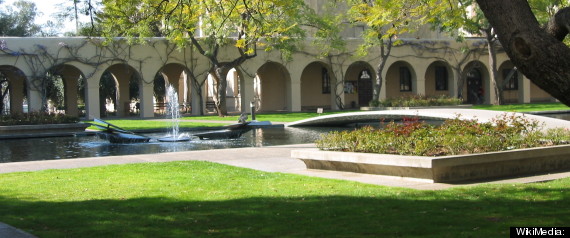
Dr. Troian’s allegations describe subversion of one of America’s most important scientific institutions and provide a potential case study of how U.S. taxpayer funded scientific technology is stolen by Israel.
01/14/15 – Following is a deeply disturbing excerpt from a civil lawsuit filed by a Caltech professor against Caltech, often named the world’s top research university. Caltech’s official name is the California Institute of Technology.
According to the lawsuit, a small coterie of Caltech professors and administrators ignored Israeli spying and theft of taxpayer-funded U.S. technology and retaliated against the professor for reporting it.
Caltech Provost Edward Stolper, who has ties to Israel and received an honorary degree from one of its universities, seems to have been one of those leading the charge.
The lawsuit is by a distinguished physicist named Dr. Sandra Troian, who was recruited from Princeton, has won numerous scientific awards, and serves on national and international scientific boards. In her suit Dr. Troian says that an Israeli postdoctoral student blatantly violated US laws and transmitted information on potential space technology to Israel.
According to Troian, when she reported these violations, some Caltech administrators and professors failed to investigate the Israeli’s extensive violations, and then, enabled by diverse cronies and subordinates, launched an escalating retaliatory campaign against her for trying to stop the Israeli’s illegal activities. Some of the actions described below were remarkably petty, others of considerable significance.
The complaint, filed November 13th, 2014, describes the course of events in illuminating and excruciating detail. The statement also says that Stolper and others worked to impede information from reaching the FBI, which was investigating possible Israeli spying and infiltration at Caltech.
The alleged espionage and theft largely took place at Caltech’s Jet Propulsion Laboratory, a top NASA research and development center.
According to Troian’s statement, Stolper repeatedly attempted to intimidate Troian, saying that people at Caltech “feared” him and that she would be “miserable” if she did not cooperate with him. Stolper also seems to have used his power to deny Troian more than a million dollars worth of grant funds, threatened to cut off her access to post-doctoral researchers, and attempted to tar her with (unfounded) accusations of scientific misconduct.
If Troian’s statements below are accurate, they reveal significant subversion of one of America’s most important scientific institutions. They also provide a case study of how U.S. taxpayer funded scientific technology is stolen by Israel. U.S. agencies periodically name Israel as a top espionage threat against the United States.
In a statement announcing the lawsuit, Troian said: “I have committed my heart and soul to Caltech. But I will not violate the law. And, I will not allow Caltech to ruin my career for alerting them to violations of laws intended to protect our greater society.”
The Pasadena Star-News reports that a Troian attorney, Dan Stormer, “said national security concerns are at stake.” The newspaper reports that Stormer seeks punitive damages because Caltech should “be held publicly accountable for their conduct.” Stormer said, “Plaintiffs in similar cases have been awarded multibillion-dollar verdicts.” The Caltech administration has denied culpability.
Two hearings are currently scheduled in Los Angeles Superior Court:
A trial setting conference will be held is on February 24, 2015 at 9:30 am in department 82 at 111 North Hill Street, Los Angeles, CA 90012.
A hearing to consider a motion by Caltech for bifurcation is scheduled for the same location on May 14, 2015. Caltech claims that some of Troian’s claims are not appropriate for legal action because she has not yet exhausted internal remedies.
Below is an excerpt from Troian’s legal complaint, with photos added of the cast of characters. Troian is demanding a jury trial.
FACTUAL ALLEGATIONS
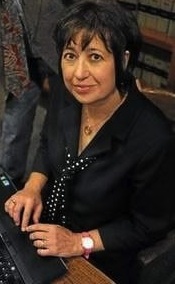
Dr. Sandra Troian, professor who filed lawsuit.
Dr. Troian is a Prominent Physicist and Academic at Caltech.
11. Dr. Troian has been a physicist and accomplished academic scholar for over twenty-five years.
12. Dr. Troian holds a B.A. in Physics from Harvard University and a M.S. and Ph.D. in Physics from Cornell University. Prior to joining Caltech, she was a faculty member at Princeton University, where she was promoted to tenured Associate Professor in 1999 and Full Professor in 2002.
13. Caltech recruited Dr. Troian to join its faculty as a Professor of Applied Physics, of Aeronautics, and of Mechanical Engineering in the Division of Engineering and Applied Science (“EAS”).
14. Dr. Troian began her employment at Caltech in September 2006. Her employment is governed by a contract between her and Caltech, executed on May 3, 2006, and by Caltech’s Faculty Handbook.
15. Dr. Troian is the only female faculty member in Applied Physics at Caltech, and one of only four female physicist faculty members on campus.
16. Dr. Troian has earned numerous awards for her research and teaching from the National Science Foundation, the American Physical Society, the Caltech Moore Distinguished Scholar program, and Princeton and Caltech. She has served on numerous editorial, executive, and advisory boards including the Defense Sciences Research Council, the Annual Reviews of Fluid Mechanics, the Physics of Fluids, the Kavli Institute for Theoretical Physics, the Microdevices Laboratory of the Jet Propulsion Laboratory, the Max-Planck-Institut für Dynamik und Selbstorganisation, the Society of Engineering Science, Inc., and the Institute for Defense Analysis. She has also worked in industry, and consults for government and private sector organizations.
17. Dr. Troian is also a contractor and holds research privileges at the Jet Propulsion Laboratory (“JPL”), which is a federally-funded research and development facility managed by Caltech on behalf of the National Aeronautics and Space Administration (“NASA”).
18. Federal export control laws govern the conditions under which certain information, technologies, and commodities at JPL can be transmitted to other countries, or to unauthorized persons in the U.S. Several federal agencies, including the U.S. Department of State through its International Traffic in Arms Regulations (“ITAR”), administer federal export control laws.
Dr. Troian Reported Apparent Illegal Activity by Her Postdoctoral Scholar, Dr. Amir Gat, to Caltech, but Caltech Refused to Take Action.

Amir Gat, postdoctoral researcher who allegedly illegally transmitted information to Israel. He now works at Technion – Israel Institute of Technology.
19. In March 2010, Dr. Troian became Principal Investigator (“PI”) on an export controlled project at JPL known as the Electrospray Thruster Array Technology Feasibility Study Project (“Electrospray Project”). The goal of the Electrospray Project was to design a new type of space micropropulsion system.
20. The Electrospray Project was ITAR-restricted, which meant that Dr. Troian and all other project researchers could not divulge or export any project-related technical data to foreign end users or foreign destinations without U.S. government authorization.
21. The Defense Advanced Research Projects Agency (“DARPA”) funded the Electrospray Project.
22. Dr. Troian hired Dr. Amir Gat to work with her on the Electrospray Project as a postdoctoral research scholar in March of 2010.
23. Dr. Gat is an Israeli foreign national, who, at the time, had recently earned his Ph.D. in Aerospace Engineering from the Technion – Israel Institute of Technology (“ITT”).
24. Caltech approved Dr. Gat’s hiring as a Caltech employee.
25. As Dr. Gat’s research supervisor, Dr. Troian had a duty to ensure Dr. Gat’s compliance with ITAR.
26. Both Dr. Troian and Dr. Gat signed a Technology Control Plan (“TCP”) and addendum governing the Electrospray Project. In so doing, they certified their understanding of their obligations not to disclose ITAR-restricted technical data to foreign persons or foreign countries without prior approval from the U.S. Department of State and that failure to comply with this obligation could subject them to criminal fines and penalties.
27. A violation of the TCP constitutes a violation of ITAR.
28. Soon after Dr. Gat began working for Dr. Troian on the Electrospray Project, Dr. Troian began to suspect him of violating the TCP and ITAR provisions.
29. Dr. Gat refused to properly record and safeguard his calculations, numerical simulations, and technical details of the JPL device, as required by DARPA, the TCP, and ITAR.
30. Dr. Gat also stored project-related files and technical information on his personal laptop, rather than on his safeguarded office computer, in violation of the TCP and ITAR.
31. Dr. Gat also repeatedly entered erroneous numbers into the design software code when running project simulations, despite clear instructions from Dr. Troian and JPL researchers on which numbers to use.
32. On May 25, 2010, a virus attacked Dr. Troian’s computer network at Caltech, causing hundreds of project files to be uploaded in rapid succession to an unknown IP address outside of Caltech and causing Caltech to disable Dr. Troian’s network for several days.
33. Dr. Troian traced the virus that caused the network problems to Dr. Gat’s computer, and notified Caltech officials of this fact.
34. When Dr. Troian questioned Dr. Gat about the virus attack, he refused to disclose the websites he had visited prior to the attack on the network.

Daniel Wiehs, professor at Israel’s Technion and a member of Israel’s National Steering Committee for Space Infrastructure of the Ministry of Science, Chair of Israel’s National Committee for Space Research, and Chief Scientist at the Ministry of Science and Technology.
35. On May 28, 2010, Dr. Gat admitted to Dr. Troian that he had been sharing details of the Electrospray Project with Dr. Daniel Weihs, his Ph.D. advisor at ITT in Israel, without proper U.S. government approval. Dr. Gat refused to disclose to Dr. Troian the substance or extent of his transfer of information.
36. Dr. Weihs was a member of Israel’s National Steering Committee for Space Infrastructure of the Ministry of Science, Chair of Israel’s National Committee for Space Research, and Chief Scientist at the Ministry of Science and Technology.
37. On June 3, 2010, Dr. Troian found Dr. Gat wandering alone, unauthorized, in one of her access-restricted experimental laboratories. Dr. Gat explained that Dr. Weihs had recommended that he “look around” to see what other aerospace projects were ongoing at Caltech in collaboration with JPL. Dr. Gat said that he was hoping that the Israel Institute of Technology would hire him in the future, after he left the United States and returned to Israel.
38. Throughout the summer of 2010, Dr. Troian reported to Caltech, her growing concerns that Dr. Gat was transferring export controlled information without proper U.S. government approval to various Caltech and JPL officials.

Marionne Epallé, Caltech administrator who removed Gat’s papers after Troian reported him, despite the fact that this allegedly violated ITAR regulations. Epallé said she had been ordered to do so.
39. On June 4, 2010, Dr. Troian met with EAS Division Administrator Marionne Epallé and specifically requested that Ms. Epallé document Dr. Gat’s apparent TCP and ITAR violations. On June 14, 2010, Dr. Troian contacted Ms. Epallé and Dr. Rosakis again reiterating her concerns about Dr. Gat and requesting that they be documented for the record.
40. At least two JPL supervisors also reported Dr. Gat’s apparent illegal activity to the JPL Special Programs Security Manager, who handles espionage concerns.
41. To Dr. Troian’s knowledge, Caltech did not investigate Dr. Gat or otherwise take action in response to Dr. Troian’s or other JPL supervisors’ complaints of Dr. Gat’s TCP and ITAR violations.
42. Upon information and belief, during this period in 2010, Caltech was seeking to renew its contract with NASA to manage JPL, and, as part of the reapplication process, needed to certify that its employees and contractors were not violating U.S. government security regulations, including ITAR.
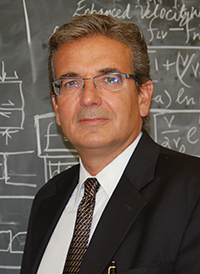
Ares Rosakis, division chair, was one of the first people informed about Gat’s behavior. Troian says that after the FBI questioned her about the situation, Rosakis warned Troian that her behavior was becoming “dangerous” for the Division and for Caltech.
43. On August 3, 2010, Dr. Troian dismissed Dr. Gat from the Electrospray Project because of her security concerns about him. She instructed Dr. Gat to return all material belonging to the Project, but he refused to do so and threatened to continue working on the project.
44. Dr. Troian did not have the power to terminate Dr. Gat’s employment with Caltech entirely, only to dismiss him from her own research group.
45. On August 4, 2010, Dr. Gat emailed a JPL supervisor and asked for permission to continue working on Dr. Troian’s project or other aerospace projects at JPL. The supervisor denied Dr. Gat’s request and instructed Dr. Troian to secure all material in his possession.
46. On August 8, 2010, a week after Dr. Troian terminated Dr. Gat from the Electrospray Project, she discovered that he had been posting literature pertaining to the Project on a public web site since March 22, 2010, and that users worldwide were linking to the site. Dr. Gat’s more than 65 online postings were unauthorized and revealed the key operating principle of the JPL micropropulsion device, which violated ITAR and the TCP.

Troian says she informed April White Castaneda, Caltech’s Executive Director of Human Resources, that Gat had posted information to a public site that revealed the key operating principle of the JPL micropropulsion device. This violated federal regulations.
47. Dr. Troian immediately reported Dr. Gat’s unauthorized online postings to Ms. Epallé, to a JPL supervisor, to April White, Caltech’s Executive Director of Human Resources, and to Adam Cochran, Caltech’s Associate General Counsel.
48. Throughout August and September 2010, Dr. Troian submitted a series of requests to Caltech to secure and lock down Dr. Gat’s work-related materials and electronic files, and to confiscate his office and building keys and campus ID. Dr. Troian contacted Dr. Ares Rosakis, Caltech’s EAS Division Chair; Susan Connor, a Caltech Senior Human Resources (“HR”) Consultant; Julia McCallin, Caltech’s Associate Vice President of HR; and Dr. Morteza Gharib, Caltech’s Vice Provost of Research, among others.
49. On August 16, 2010, Dr. Troian met with Dr. Gharib. As Caltech’s Vice Provost of Research, Dr. Gharib was responsible for investigating Dr. Gat’s possible ITAR violations and for securing his work-related materials.

Troian says she informed Adam Cochran, Caltech’s Associate General Counsel, that Gat had posted information to a public site that revealed the key operating principle of the JPL micropropulsion device. This violated federal regulations.
50. During the meeting, Dr. Troian explained Dr. Gat’s erratic behavior and his admission that he had improperly transferred ITAR-controlled technical data to Dr. Weihs. She explained that she did not know the full extent of the transfer because Dr. Gat failed to document it, and refused to give her access to his laptop on which the project files were stored. Dr. Troian insisted that Caltech immediately terminate Dr. Gat’s employment and secure all of his material pertaining to the Electrospray Project.
51. Dr. Gharib told Dr. Troian “It’s not my business.” He further told Dr. Troian that he (Gharib) was “best friends” with Dr. Weihs, Dr. Gat’s Ph.D. advisor in Israel with whom Dr. Gat had admitted sharing ITAR-restricted information, and that, as a favor to Dr. Weihs, he (Gharib) had already offered Dr. Gat a postdoctoral research scholar position in his own research group since she had terminated him. [Editor’s note: Gharib had been made vice provost in July.]
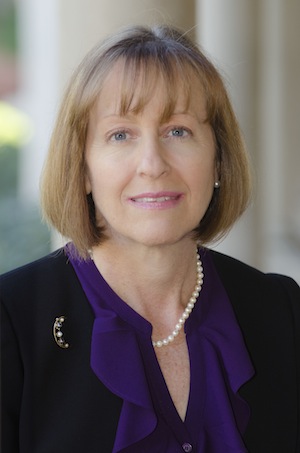
Dr. Troian says she submitted a series of requests to Caltech to secure and lock down Dr. Gat’s work-related materials and electronic files. Among those she contacted was Julia McCallin, Caltech’s Associate Vice President of HR (pictured above).
52. On August 19, 2010, Ms. Epallé went to Dr. Gat’s former office and hurriedly put all of his work materials into a cardboard box. Dr. Troian tried to stop Ms. Epallé, telling her that her actions violated ITAR and Caltech protocol for securing such materials. Ms. Epallé responded that she was under direct orders to remove the material and to give it to Dr. Gat. Dr. Troian tried to physically stop Ms. Epallé, but she rushed out of the room with Dr. Gat’s work materials.
53. No one at Caltech ever made Dr. Gat return his work files, or ever reviewed his laptop for ITAR information. It waited several weeks to request that Dr. Gat return his office keys, and that he remove the project-related information that he had posted online improperly, and likely illegally, after Dr. Troian terminated him from the Electrospray Project.
54. Dr. Gat worked in Dr. Gharib’s research group at Caltech from August 2010 until July 2012.

Morteza Gharib, Caltech vice provost, said he was “best friends” with Dr. Weihs, the Israeli with whom restricted information had been shared.
55. Dr. Gat has since returned to Israel, where he is Assistant Professor of Mechanical Engineering at ITT, an Israeli government institution, and he continues to actively publish with Dr. Gharib.
FBI Agents Approached Dr. Troian about Dr. Gat, and She Truthfully Disclosed His Apparent Unlawful Activities.
56. On June 28, 2012, Kelly M. Sullivan and David Tsang, FBI agents with the Los Angeles County Counterintelligence Division, approached Dr. Troian and told her that there had been several security breaches at JPL.
57. They told her that Dr. Gat was a focus of a larger investigation involving ITAR violations and possibly espionage, and asked her for information pertaining to his activities at JPL and Caltech.
58. Dr. Troian responded to all of the FBI agents’ questions truthfully. She responded that she believed Dr. Gat had, in fact, violated federal export control laws while at Caltech. The agents asked Dr. Troian if she had ever reported Dr. Gat and to whom, and she replied that she had repeatedly voiced her concerns to Caltech officials, including Drs. Gharib and Rosakis, and to JPL supervisors, but Caltech had failed to investigate Dr. Gat. They asked Dr. Troian about Dr. Gat’s whereabouts, and she replied that he was still on campus, because Dr. Gharib had taken Dr. Gat into his own research group immediately after she dismissed Dr. Gat from her own. The agents asked why Dr. Gharib had hired Dr. Gat, and she told the agents about Dr. Weihs’s relationship with Dr. Gharib.
59. The agents urged Dr. Troian to execute an affidavit containing this information about Drs. Gat, Rosakis, and Gharib. Dr. Troian voiced her fear of retaliation by Caltech if she were to execute an affidavit, and declined to do so.
60. On July 3, 2012, Agent Sullivan returned to ask Dr. Troian more questions about illegal activity at Caltech and JPL. Although Dr. Troian answered Agent Sullivan’s questions, because of fear of retaliation from Caltech, she again declined to execute an affidavit.
Caltech Officials Accused Dr. Troian of Calling the FBI, and Launched a Campaign of Retaliation and Intimidation Against Her.
61. On July 18, 2012, two weeks after Dr. Troian’s second conversation with the FBI, Dr. Rosakis, Ms. Epallé, and Dr. Gharib met with Dr. Troian under the pretext of discussing matters related to Dr. Troian’s postdoctoral research scholars.
62. During the meeting, Drs. Gharib and Rosakis accused Dr. Troian of calling the FBI to Caltech and pressured her to divulge the content of her conversations with the FBI. Dr. Troian explained that the FBI had approached her and asked about Dr. Gat. Drs. Gharib and Rosakis insisted that they knew that Dr. Troian had called the FBI. They demanded: “How did they find out? How did they know? And why him [Dr. Gat]?”
63. Dr. Troian reiterated that Dr. Gat had likely violated federal export control laws and that Caltech should have fired him immediately, rather than keeping him engaged for more than two years.
64. Dr. Gharib admitted that he knew Dr. Gat had spoken to Dr. Weihs about the Electrospray Project. He insisted that Dr. Gat had “made a mistake” in violating any laws. He stated that he had asked Dr. Gat about the violations and “he [Dr. Gat] said ‘no’ and we accepted that.”
65. In this meeting, Drs. Rosakis and Gharib also falsely accused Dr. Troian of mistreating former postdoctoral research scholars who had worked with her, including Dr. Gat and Dr. Anoosheh Niavaranikheiri, a postdoc who worked under Dr. Troian from June 2011 to June 2012.
66. Drs. Rosakis and Gharib threatened to bar Dr. Troian from hiring future postdoctoral research scholars, which would seriously impede her ability to perform her research.
67. This was the first time anyone had accused Dr. Troian of mistreating postdoctoral research scholars.
68. When Dr. Troian pushed Drs. Gharib and Rosakis to reveal the basis for any postdoctoral research scholar complaints against her, they admitted that no formal complaints existed.
69. The meeting lasted two hours and ended with Drs. Gharib and Rosakis warning Dr. Troian that her behavior was becoming “dangerous” for the Division and for Caltech.

Edward M. Stolper, Caltech provost who told Troian she would be “miserable” if she didn’t cooperate.
70. On July 22, 2012, Dr. Troian wrote a letter to Dr. Stolper, Caltech’s Provost, asking him to address Drs. Gharib’s and Rosakis’s harassment and baseless allegations. Drs. Troian and Stolper met on July 30, 2012. At the outset of the meeting, Dr. Stolper also accused Dr. Troian of calling the FBI. He stated that Ms.Stratman and “many people” had personally informed him that she had called the FBI.
71. At the meeting, Dr. Stolper told Dr. Troian that Caltech did not like its employees calling the authorities. He said repeatedly, “You’re difficult. That’s what you are and you are going to have to live with that.” He told Dr. Troian that he was “feared” on campus.
72. At the same meeting, Dr. Stolper also accused Dr. Troian of mistreating her postdoctoral research scholars. He told Dr. Troian that Dr. Niavaranikheiri had lodged a complaint against her and that lawyers were involved, but he refused to elaborate or to show Dr. Troian a copy of the supposed complaint. Before Dr. Troian left his office, Dr. Stolper again told her “everybody is afraid of me” and said he wondered why that was so.
73. That same day, Drs. Gharib and Rosakis placed a false disciplinary warning in Dr. Troian’s personnel file without her knowledge. The warning stated that three of her former postdoctoral research scholars — Drs. Gat, Niavaranikheiri, and Dietzel — “had serious complaints about working with [her],” and that they would bar her from hiring postdoctoral research scholars if one more complaint were filed.
74. Caltech has never shown or explained to Dr. Troian any of these supposed complaints, despite her repeated requests. In fact, on a least two occasions, Drs. Gharib and Rosakis have admitted that no such complaints existed, and that Dr. Niavaranikheiri had left Caltech due to personal issues.
75. Caltech has refused to remove the disciplinary letter from her file, despite the fact that it is based on information that Drs. Gharib and Rosakis have admitted is false.
Caltech Falsely Accused Dr. Troian of Research Misconduct.
76. Dr. Troian has investigated the physics of temperature discontinuities at gas-solid and liquid-solid interfaces in nanoscale systems (“thermal slip”) since 2010, and published a paper on the topic in February of 2011. She has been investigating velocity discontinuities at liquid-solid interfaces (“velocity slip”), since 1997, and is well known for a discovery reported in the journal, Nature, in 1997.
77. In June 2011, Dr. Troian hired Dr. Anoosheh Niavaranikheiri as a postdoctoral research scholar to assist her with computer simulations on thermal slip. Because Dr. Niavaranikheiri had no background in thermal slip, Dr. Troian first tasked her with reproducing results that had already been documented in the scientific literature to prepare and train her to work on novel problems with Dr. Troian.
78. Dr. Niavaranikheiri’s simulations produced erroneous results. Dr. Troian notified Dr. Niavaranikheiri of this on several occasions, beginning in November of 2011, but by May 2012, Dr. Niavaranikheiri had not been able to reproduce successfully the results documented in scientific literature. As a result, Dr. Troian began conducting her own computer simulations on the project, using different computing algorithms, techniques, and hardware than Dr. Niavaranikheiri.
79. Dr. Niavaranikheiri abruptly left Caltech in early June 2012. Dr. Niavaranikheiri never gave Dr. Troian notice or an explanation for why she never returned to work, though she later told Dr. Gharib that she was having personal problems and did not like the environment at Caltech. She never progressed enough in her thermal slip simulations to work on the novel problems for which Dr. Troian had hired her.
80. After Dr. Niavaranikheiri’s sudden departure, Dr. Troian began to look for a new assistant on the project.
81. On August 2 , 2012, while still seeking a new assistant, Dr. Troian submitted several online abstracts (approximately 200 words each) to present at the 2012 American Physical Society Meeting of the Division of Fluid Dynamics (“APS DFD”) scheduled for November 2012.
82. APS talks are informal ten-minute reports by members of the scientific community regarding their current research.
83. APS abstracts are 200-word summaries that researchers submit in advance of their talks. The abstracts are not scientific publications; rather, they are informal, not refereed, and they are subject to change at any time. They are also not required to correspond to the eventual talk that the researcher gives at the APS meeting, as research is often developed between the submission date and the presentation date.
84. One of Dr. Troian’s abstracts focused on the simulations she had been conducting on thermal slip (“2012 APS abstract”). The abstract did not include Dr. Niavaranikheiri’s name, because Dr. Niavaranikheiri’s results had not contributed to Dr. Troian’s work on the topic.
85. APS abstracts can list multiple authors, and the APS typically accepts one abstract per first author. Knowing this, and with hopes of finding a new assistant before the conference, Dr. Troian listed herself as second author on the 2012 APS abstract because she was first author on another abstract that year. Dr. Troian used the placeholder name of M. Pucci for the first author, which is her cat’s name.
86. There are many examples in the Physics and Mathematics literature in which names of pets or other humorous objects appear as co-authors on archival, peer reviewed and highly cited journals. Prof. Andre Greim, recipient of the 2010 Nobel Prize in Physics, co-authored a scientific paper in 2001 with his pet hamster, H.A.M.S. ter Tisha. In 1975, Prof. Jack Hetherington co-authored a well-cited paper in Physical Review Letters, a leading physics journal, with his cat F.D.C. Willard. Prof. Doron Zeilberger, recipient of the 2004 Euler Medal in Mathematics, has co-authored over 30 technical papers with Shalosh B. Ekhad, the name of his computer.
87. By November 18, 2012, the date of the APS meeting, Dr. Troian had been unable to find a new assistant and had finished her simulations just shy of the meeting. She informed the APS meeting officials of this change and delivered the ten-minute talk herself.
88. Upon Dr. Troian’s request, APS later deleted the placeholder name from the online scientific program.
89. Dr. Gharib attended Dr. Troian’s presentation.
90. Dr. Gat was also at the APS meeting, and spoke with Dr. Gharib there several times.
91. On December 14, 2012, Drs. Gharib and Rosakis summoned Dr. Troian to the EAS Division Office. Fearing threats and retaliation similar to what she had experienced earlier that year, Dr. Troian requested the presence of a neutral third party in advance of the meeting, but Drs. Gharib and Rosakis refused.
92. At the meeting, Drs. Gharib and Rosakis claimed that Dr. Niavaranikheiri had filed a formal complaint against Dr. Troian two weeks before the 2012 APS meeting alleging that Dr. Troian failed to list her (Dr. Niavaranikheiri) as a co-author on the 2012 APS abstract. Drs. Gharib and Rosakis refused to show the alleged complaint to Dr. Troian, despite her requests, and offered no explanation as to why they failed to notify Dr. Troian of this supposed complaint until after Dr. Troian had presented her talk.
93. Drs. Gharib and Rosakis also questioned Dr. Troian’s use of a placeholder name on the abstract.
94. Dr. Troian explained that Dr. Niavaranikheiri did not contribute to the 2012 APS abstract or to any of the results Dr. Troian presented at the meeting, and that Dr. Niavaranikheiri’s results in fact contradicted those that Dr. Troian presented at the meeting.
95. Dr. Troian also explained that she had used the placeholder name while she was seeking a new assistant on the project, but that she had been unable to find one in time for the conference.
96. Dr. Gharib admitted his familiarity with the informality of APS abstracts, and that it was common practice for presenters to give more than one talk at APS meetings, as Dr. Troian had, but he was not interested in Dr. Troian’s response to his and Dr. Rosakis’ accusations. Instead, Dr. Gharib stated that FBI agents had returned to Caltech two weeks earlier to look for Dr. Gat.
97. Drs. Gharib and Rosakis reiterated that they were upset about the FBI’s visits to Caltech and about having “a faculty member that attracts these situations.” Dr. Rosakis claimed that it was Dr. Gharib’s responsibility as Vice Provost of Research to ensure that the FBI did not come to campus. Both officials accused Dr. Troian of harming Caltech’s reputation.
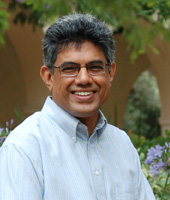
Dr. Kaushik Bhattacharya, Executive Chair of the Caltech Dept. of Mechanical Engineering and close friend of Dr. Rosakis, emailed Dr. Troian saying he was considering terminating her affiliation within the department.
98. On December 17, 2012, Dr. Kaushik Bhattacharya, Executive Chair of the Department of Mechanical Engineering, of which Dr. Troian is a faculty member, emailed Dr. Troian to tell her that he was considering terminating her affiliation within the department.
99. Dr. Bhattacharya is a close friend and colleague of Dr. Rosakis.
100. Dr. Bhattacharya claimed that Dr. Troian was not sufficiently participating in department activities, even though Dr. Troian has been actively involved in recruiting and advising students in the department since 2007.
101. Dr. Troian responded to Dr. Bhattacharya’s email with a lengthy rebuttal on January 4, 2013, and contacted him again on February 27, 2013, but he never responded.
102. On December 18, 2012, the day after Dr. Bhattacharya’s email, Dr. Stolper notified Dr. Troian that he and the two other selection committee members had denied her proposal for $592,000 in funding from the FY 2013 JPL/Caltech President’s and Director’s Fund for her collaborative research at JPL. Dr. Troian was shocked at the denial because JPL officials had strongly supported her proposal.
103. On December 21, 2012, Dr. Stolper telephoned Dr. Troian to reiterate the “seriousness” of Drs. Gharib’s and Rosakis’s allegations that she had misappropriated Dr. Niavaranikheiri’s work and had used a placeholder name in the 2012 APS abstract. He told Dr. Troian that her actions constituted “research misconduct,” and had “irreparably harmed” the reputation of the Institute.
104. Charges of research and academic misconduct are among the most serious and damaging against a faculty member. Such charges, even if later withdrawn, have far reaching, long-lasting repercussions that can damage an academic and consulting career permanently.
105. Dr. Stolper asked Dr. Troian to send him the slides from her APS presentation, and she immediately did so via intra-campus mail.
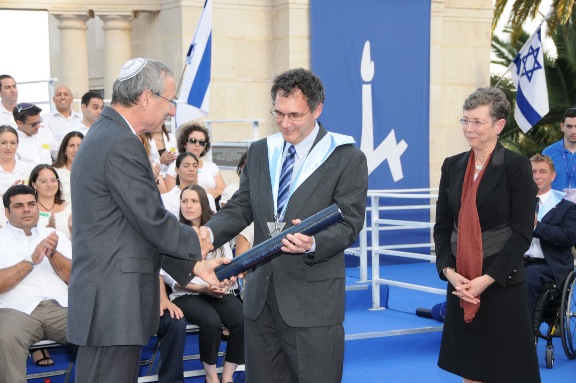
Edward Stolper honored by Israel’s Hebrew University in 2012. “Prof. Stolper is a longtime friend of the Hebrew University who also headed the first international academic review committee at the Faculty of Science”
106. On Christmas Eve 2012, Dr. Stolper emailed Dr. Troian that he had not received the APS slides, and insinuated that she was delaying sending them in order to change them. Dr. Troian therefore spent part of Christmas Eve in her office at Caltech, re-transmitting the presentation files to Dr. Stolper.
107. On December 29, 2012, Dr. Stolper wrote to Dr. Troian: “there can be no mitigation [of the alleged misconduct] based on any circumstances I can envision,” which effectively declared Dr. Troian guilty before any investigation.
108. On January 4, 2013, Dr. Troian sent Dr. Stolper a detailed letter explaining that Drs. Gharib and Rosakis’s allegations were in retaliation for her speaking to the FBI, and that she had never engaged in any misconduct.
109. Caltech’s Whistleblower Policy, which is part of Dr. Troian’s contract with Caltech, prohibits “retaliation against an individual who makes a good faith disclosure of suspected wrongful conduct” and provides that if “an employee believes s/he has been the subject of retaliation for making a good-faith disclosure, s/he is encouraged to contact her/his supervisor.” Dr. Troian’s January 4, 2013 letter was the second time she had complained to Dr. Stolper, her supervisor, about Drs. Rosakis and Gharib’s retaliation against her for her disclosures about Dr. Gat to the FBI. Instead of investigating Dr. Troian’s retaliation complaints in accordance with Caltech’s Whistleblower Policy, Dr. Stolper further conspired with Drs. Gharib and Rosakis to silence Dr. Troian and to push her out of her job at Caltech.
110. On February 26, 2014, Dr. Stolper told Dr. Troian that he intended to move forward with an investigation. He claimed that he had received written documentation related to Dr. Troian’s alleged misconduct from Drs. Gharib and Rosakis, but refused to share it with her.
Caltech Conducted a Sham Investigation into the Charges Against Dr. Troian and Issued False Findings Against Her.

Grace C. Fisher-Adams, Director, Office of Research Compliance. “Caltech denied Dr. Troian the use of counsel throughout the investigation, despite her requests, but it used Dr. Fisher-Adams, a licensed and active attorney in the State of California, to advocate on behalf of Dr. Gharib and Dr. Stolper. Dr. Troian challenged Dr. Fisher-Adams’ role in the investigation from the start because Dr. Fisher-Adams reported directly to Dr. Gharib, and therefore, had a conflict of interest in violation of Caltech policy.”
111. On March 1, 2013, Dr. Grace Fisher-Adams, Caltech’s Director of Research Compliance, emailed Dr. Troian a letter from Dr. Stolper stating that he had instituted an investigation against her to address: (1) your admitted listing of your cat as first author on the submitted and published abstract; and (2) an allegation by Dr. Anoosheh Niavaranikheiri, your postdoctoral fellow from 2011 to 2012, that the work presented in the abstract is, in part, her work for which she should have received credit as a coauthor.
112. Caltech’s charges against Dr. Troian amounted to charges of plagiarism and falsification of the research record, which constitute “research misconduct” under the Misconduct Policy set forth in the Caltech Faculty Handbook. Faculty Handbook at 7/1. Dr. Stolper had in fact already told Dr. Troian that the charges against her constituted “research misconduct.” Dr. Troian was therefore entitled to the protections set forth in the Handbook’s Misconduct Policy.
113. Rather than follow the Handbook’s Misconduct Policy, however, Dr. Stolper’s March 1, 2013 letter said that Caltech was using the Misconduct Policy only as “guidance,” which, in effect, allowed Caltech to bend the rules and find Dr. Troian guilty regardless of the evidence uncovered in the investigation. Throughout Caltech’s investigation, Dr. Fisher-Adams and members of the Investigation Committee repeatedly denied that Dr. Troian had been charged with research misconduct and reiterated that they were merely using the Misconduct Policy as a “framework” for the investigation.
114. Pursuant to the Misconduct Policy, Dr. Stolper assembled an Investigation Committee to investigate the allegations against Dr. Troian. Dr. Stolper hand-picked the committee.
115. Between March 1, 2013 and May 8, 2013, Dr. Stolper’s hand-picked Investigation Committee interviewed witnesses and collected evidence related to the charges against Dr. Troian. On April 19, 2013, Dr. Troian submitted 198 pages of supporting documentation in her defense, though Caltech refused to show her Dr. Niavaranikheiri’s purported complaint or to identify which text, slides, plots, equations, data, or results were in dispute.

“Dr. Stolper hand-picked the individuals on the Investigation Committee. Not a single member of the committee possessed technical competence in Dr. Troian’s field of theoretical physics and molecular simulation techniques… Dr. Konstantinos Giapis is a chemical engineer…”
116. On May 8, 2013, Dr. Troian attended a hearing before the Investigation Committee to address the two charges against her. Dr. Fisher-Adams also attended. Caltech denied Dr. Troian’s request that a neutral third party document the proceedings. The hearing lasted nearly three hours. Towards the end of the hearing, the Committee asked Dr. Troian to immediately turn over the slides for another ten minute talk on thermal slip that she presented at the 2013 APS meeting.
117. Following the hearing, Dr. Troian submitted an additional 200 pages of emails between herself and Dr. Niavaranikheiri to the Committee, all of which definitively proved that Dr. Niavaranikheiri and Dr. Troian had a friendly working relationship, contrary to what Drs. Stolper, Gharib, and Rosakis, and later the Committee, alleged.
118. On July 1, 2013, the same day that Dr. Stolper became Interim President, the Investigation Committee released a Draft Report dated June 25, 2013. The Report ignored Dr. Troian’s exculpatory evidence, and presented new and unfounded allegations that Caltech had never given her an opportunity to address. [Caltech has since named a new president: Thomas Felix Rosenbaum.]
119. The Draft Report also revealed that Dr. Niavaranikheiri had never, in fact, filed a formal complaint against Dr. Troian. She had emailed Caltech’s Human Resources Department six weeks prior to Dr. Troian’s 2012 APS presentation to inquire as to the identity of M. Pucci, the name that Dr. Troian had used as a placeholder while seeking a new assistant. She subsequently responded to an email from Dr. Gharib pertaining to her research with Dr. Troian. Upon information and belief, Dr. Niavaranikheiri thereafter refused to cooperate with the Investigation Committee, refused to be interviewed by the Investigation Committee, and refused to provide the Investigation Committee with actual evidence of plagiarism or misappropriation.
120. On August 19, 2013, Dr. Troian responded to the Draft Report with a 125 page point-by-point rebuttal in her defense.
121. On September 1, 2013, the Investigation Committee issued a Final Report finding Dr. Troian guilty of wrongdoing, despite clear evidence to the contrary. The Report omitted seventy pages of Dr. Troian’s exculpatory evidence. Dr. Fisher-Adams claimed this omission was an error.
122. The Final Report also included Dr. Troian’s confidential January 4, 2013 letter to Dr. Stolper, which revealed that she had spoken to the FBI about apparent illegal activity at Caltech.

“Melany Hunt, Vice Provost of Academic Affairs, acting at the direction of Provost and then-Interim President Stolper, ratified the Committee’s findings and issued a decision recommending three sanctions against Dr. Troian…”
123. On October 17, 2013, Melany Hunt, Vice Provost of Academic Affairs, acting at the direction of Provost and then-Interim President Stolper, ratified the Committee’s findings and issued a decision recommending three sanctions against Dr. Troian: 1) Dr. Troian was to draft a letter notifying APS that she had violated their policies with her November 2012 and March 2013 presentations; and if she refused to do so, Dr. Hunt would notify APS herself; 2) Dr. Troian was to acknowledge Dr. Niavaranikheiri in all future publications related to any of her “work on molecular dynamics simulations at liquid/solid interfaces;” and 3) Dr. Troian was to send “copies of preprints of future papers on this topic to the Office of the Provost and EAS Division Office,” namely Drs. Gharib and Rosakis.
The second and third penalties, i.e. the monitoring of Dr. Troian’s future work, were taken directly from the Handbook’s Misconduct Policy. Dr. Hunt further directed that a copy of her decision be retained in the Office of the Provost and in the EAS Division Office, and it is now in Dr. Troian’s personnel file.
124. Pursuant to the Misconduct Policy, Dr. Troian appealed Dr. Hunt’s decision on November 1, 2013.
125. Dr. Stolper, in his capacity as then-Interim President, was tasked with deciding Dr. Troian’s appeal.
126. On March 18, 2014, Dr. Troian met with Dr. Stolper at his request.
127. At the meeting, Dr. Stolper refused to discuss the facts of her case or the underlying charges, as the Handbook requires at the appeal stage. He instead told Dr. Troian, “I don’t know what the facts are and I don’t care.” He stated that he could “make things go away” if she admitted that she had exercised “poor judgment” and mistreated students, postdocs, and colleagues at Caltech. He told Dr. Troian the exact words he wanted to hear her use to confess to the false allegations of misconduct, and stated it “avoids having to find the truth.” He emphasized there was no point in discussing what happened when or who said what.
128. Dr. Stolper acknowledged that he did not believe that Dr. Troian misappropriated Dr. Niavaranikheiri’s work, but nonetheless asked Dr. Troian to falsely confess to doing so and he would dismiss the report. When Dr. Troian refused, and told Dr. Stolper that crediting Dr. Niavaranikheiri on the abstract would be fraud, he said, “You say it’s fraud – I don’t think it’s fraud. I think it’s just how you make the world go round on something like this.” He quoted lines from the movie Harvey, in which the character stated, “My mother would say ‘Elwood, in this world you can be oh so very smart or oh so very nice.’ For years I tried smart – I recommend nice.”
129. Dr. Troian indicated to Dr. Stolper that the investigation was part of Caltech’s retaliatory campaign against her for her reports to the FBI. Dr. Stolper threatened, “God, if you think you’ve had a bad two years, wait for the next two years of being confrontational with Caltech. It just won’t be fun.” He told Dr. Troian to call him with her decision and repeatedly directed her not to put anything in writing. Dr. Stolper told Dr. Troian that if she did not cooperate with him, he would affirm the findings against her and she would be “miserable.” On April 11, 2014, Dr. Troian wrote Dr. Stolper a letter that memorialized the appeal meeting and indicated that she would not admit to the false charges against her.
130. On April 14, 2014, three days after Dr. Troian’s letter, Dr. Stolper issued a decision on Dr. Troian’s appeal that affirmed the Investigation Committee’s findings against her. Pursuant to the Faculty Handbook’s Misconduct Policy, Dr. Stolper’s decision was final.
131. Several days later, on April 22, 2014, Dr. Stolper notified Dr. Troian that he had also denied her proposal for $520,952 in funding from the FY 2014 JPL/Caltech President’s and Director’s Fund for her research at JPL, though her proposal had, again, received wide support from top officials at JPL.
Caltech’s Investigation of Dr. Troian Violated Its Misconduct Policy.
132. The Misconduct Policy provides that faculty members accused of research misconduct are entitled to an investigation and hearing, and that, upon recommendation of the appropriate academic division chair (“DC”) and Provost, the President renders a final decision. Faculty Handbook at 7/1.
A. Caltech Denied Dr. Troian an Inquiry into the Charges it Levied Against Her.
133. Charges of research misconduct must proceed through three stages: Inquiry, Investigation, and Resolution. During the Inquiry stage, the Misconduct Policy requires: [T]he DC [Division Chair] [to] notify the respondent in writing of the charges and process to follow. . . . The nature of the inquiry . . . should be worked out by the DC in consultation with the complainant and respondent. . . . A written report shall be prepared that states what evidence was reviewed, summarizes relevant interviews, and includes the conclusions of the inquiry. The individual(s) against whom the allegation was made shall be given a copy of the report of the inquiry. If they comment on that report, their comments may be made part of the record. Faculty Handbook at 7/2 (emphasis added).
134. Caltech failed to provide Dr. Troian with an Inquiry stage.
135. Dr. Troian received written documentation of the charges against her for the first time on March 1, 2013, when Dr. Stolper sent her a letter stating that he had decided to initiate a formal investigation.
136. Dr. Troian protested the lack of Inquiry and Inquiry Report for the first time on March 5, 2013, and again on May 8 and June 11, 2013. In response, Caltech claimed that Dr. Troian’s December 14, 2012 meeting with Drs. Gharib and Rosakis constituted the “Inquiry.” However, Dr. Troian was not presented with any written charges or evidence of misconduct before or during that meeting, during which Drs. Gharib and Rosakis repeatedly accused Dr. Troian of bringing the FBI to campus.
137. The Institute failed to afford Dr. Troian any participation in an inquiry “process.” It further failed to collect any evidence from her, provide her with a written “report of the inquiry,” or give her an opportunity to comment on any such report, even though Dr. Stolper acknowledged on February 26, 2014 that he received the report from Drs. Gharib and Rosakis.
B. Caltech Appointed an Investigation Committee Lacking Technical Competence in Dr. Troian’s Field.
138. The Misconduct Policy states that “[t]he principal criteria for [investigation committee] membership shall be fairness and wisdom, technical competence in the field in question, and avoidance of conflict of interest. ” Faculty Handbook at 7/3 (emphasis added). “Membership of the committee need not be restricted to the faculty of the Institute.” Id.
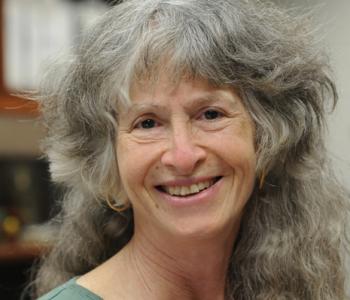
“Dr. Stolper hand-picked the individuals on the Investigation Committee. Not a single member of the committee possessed technical competence in Dr. Troian’s field of theoretical physics and molecular simulation techniques… Dr. Ellen Rothenberg is a biologist.
139. Dr. Stolper hand-picked the individuals on the Investigation Committee. Not a single member of the committee possessed technical competence in Dr. Troian’s field of theoretical physics and molecular simulation techniques. Dr. Buchwald, the Chair, is a historian of science, Dr. Paul Dimotakis is an aeronautical engineer, Dr. Konstantinos Giapis is a chemical engineer, and Dr. Ellen Rothenberg is a biologist. The Policy explicitly permitted Caltech to seek experts outside the Institute to sit on the Committee, but Caltech rejected this option. Dr. Stolper ignored Dr. Troian’s request that at least one of the individuals she identified with experience in her field be added to the Committee.
C. Caltech Permitted Biased Individuals to Serve on the Investigation Committee.
140. The Misconduct Policy states that any “semblance of conflict of interest must rigorously be avoided at all stages,” Faculty Handbook at 7/1, and “[t]he principal criteria for [investigation committee] membership shall be . . . avoidance of conflict of interest,” Faculty Handbook at 7/3 (emphasis added).
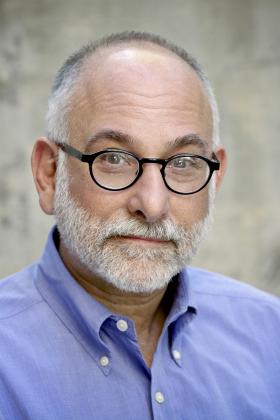
“Dr. Stolper hand-picked the individuals on the Investigation Committee. Not a single member of the committee possessed technical competence in Dr. Troian’s field of theoretical physics and molecular simulation techniques… Dr. Buchwald, the Chair, is a historian of science…” His wife, also a Caltech history professor, is an Israeli who graduated from Technion.
141. Caltech ignored Dr. Troian’s concerns of bias of the Committee members. One half of the Committee had clear allegiances to Drs. Gharib and Rosakis, the individuals who initiated the complaint and campaign of retaliation against Dr. Troian.
142. Dr. Dimotakis has been close friends with Dr. Rosakis for over thirty years. The two have published together, and they shared a research grant shortly before the investigation commenced. Dr. Dimotakis was also Chief Technologist of JPL during 2010 when Dr. Troian reported Dr. Gat’s possible ITAR violations; he was aware that Dr. Troian had spoken to the FBI.
143. Dr. Giapis is a friend and colleague of Dr. Dietzel’s Ph.D. thesis supervisor. Drs. Rosakis and Gharib had previously accused Dr. Troian of mistreating Dr. Dietzel while he was a postdoc. Dr. Dimotakis recommended to Dr. Stolper that Dr. Giapis serve on the Committee.
144. Dr. Troian complained of the conflicts of interest on the part of Dr. Dimotakis and Dr. Giapis to Committee Chair Buchwald, but he dismissed them.
D. Caltech’s Investigation Exceeded the Scope of the Charges Against Dr. Troian.
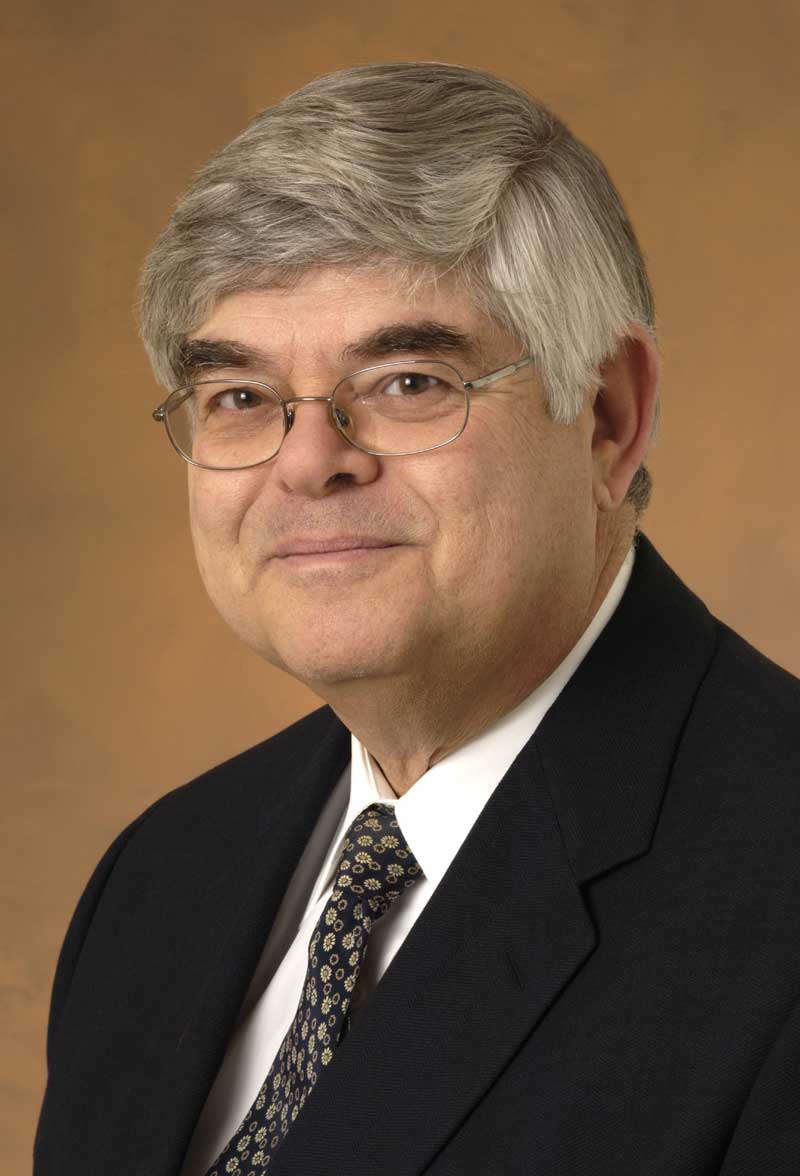
“Caltech ignored Dr. Troian’s concerns of bias of the Committee members. One half of the Committee had clear allegiances to Drs. Gharib and Rosakis, the individuals who initiated the complaint and campaign of retaliation against Dr. Troian…” Dr. Paul E. Dimotakis, Professor of Aeronautics Paul E. Dimotakis, “has been close friends with Dr. Rosakis for over thirty years…”
145. The Misconduct Policy requires that the accused faculty member be informed of “all allegations” against her “so that a response may be prepared.” Faculty Handbook at 7/3. In violation of this provision, the Committee investigated additional allegations of misconduct without notifying Dr. Troian of the new charges.
146. Shortly after initiating the investigation, Caltech demanded that Dr. Troian turn over “all materials in connection with the allegations against her.” When Dr. Troian asked the Committee to define the charges with greater specificity so that she could collect the materials for the investigation, Caltech refused to provide further clarification, and instead claimed that it was not constrained by the charges in Dr. Stolper’s letter but rather that, “the committee’s investigation may lead it in other directions depending on their ongoing findings . . . .”
147. In the process of the investigation, Caltech insisted that Dr. Troian’s entire laptop computer be imaged even though it contained personal medical records, Department of Defense materials that federal law prohibited from further distribution, and materials pertaining to Dr. Troian’s conversations with the FBI.
148. Dr. Troian was forced to hire an attorney to protect her privacy and prevent unauthorized access to federally restricted material.
149. When the Investigation Committee issued its Draft Report dated June 25, 2013, Dr. Troian learned for the first time that the Committee had investigated conduct related to an abstract she submitted for an APS meeting held in March 2013. Caltech failed to give Dr. Troian notice that it had charged her with misconduct related to the 2013 APS meeting, and she had no opportunity to rebut this false and unsupported charge at her hearing. The Committee’s Draft Report nevertheless concluded that she had “adopted authorship manipulation a second time for rule-evasion purposes during submission of the 2013 APS March meeting abstract . . . including backdating the abstract submission date to the original submission date, compromising the scientific record.”
E. Caltech Failed to Apply the Appropriate Evidentiary and Mens Rea
Standards to Its Findings.
150. The Misconduct Policy provides: [A] finding of research misconduct requires that: There be a significant departure from accepted practices of the scientific community for maintaining the integrity of the research record; The misconduct be committed intentionally, or knowingly, or in reckless disregard of accepted practices; and The allegation be proven by a preponderance of the evidence.Faculty Handbook at 7/1 (emphasis added).
151. With respect to Charge 1, the Investigation Committee made no finding that Dr. Troian’s use of a placeholder name on the 2012 APS abstract constituted a significant departure from accepted practices at APS conferences, or that Dr. Troian engaged in this conduct intentionally, knowingly, or in reckless disregard of accepted practices. In fact, Dr. Troian presented authoritative evidence that APS routinely accommodates its conference participants by permitting alterations to abstracts after submission and multiple talks by a single author. Dr. Gharib even conceded this fact during the alleged “Inquiry” meeting on December 14, 2012.
152. With respect to Charge 2, Dr. Troian produced 333 pages of evidence to the Committee that her ten-minute presentations at the APS conferences did not plagiarize Dr. Niavaranikheiri’s work, but the Investigation Committee found her guilty of this charge without applying a preponderance of the evidence standard to the evidence before it. In fact, there is no evidence that Dr. Troian used or referenced any of Dr. Niavaranikheiri’s work in her abstract or her ten minute presentations. The Committee also failed to find that Dr. Troian’s conduct related to Charge 2 represented a significant departure from accepted practices in her field or that she acted intentionally, knowingly, or in reckless disregard for accepted practices.
153. Dr. Troian submitted a 17-page appeal to Dr. Hunt challenging the Committee’s findings after it issued its Final Report. Neither Dr. Hunt nor Dr. Stolper referred to any of Dr. Troian’s evidence or the appropriate evidentiary standards in affirming the Committee’s findings.
F. Caltech Denied Dr. Troian a Proper Appeal.
154. The Misconduct Policy provides that a charged party may appeal an adverse decision “to the President on grounds of improper procedure or capricious or arbitrary decision based on the evidence in the record,” but any appeals process must be “separated organizationally from the inquiry and investigation.” Faculty Handbook at 7/4.
155. Dr. Stolper drew up the charges against Dr. Troian and hand-picked the Investigation Committee. The Policy therefore prohibited him from acting as the individual to whom Dr. Troian appealed, even though he was Interim President at the time. Further, Dr. Stolper could not render a fair decision in Dr. Troian’s appeal since he admitted that he had pre-determined her guilt before she was charged. His bias was evident in his conduct during her appeal on March 18, 2014, including his prohibition against making a record of her appeal, which violated the Misconduct Policy’s admonition that “all stages of the procedure should be fully documented,” Id. at 7/1, his statements that he did not “care about the facts,” and his refusal to review the Committee’s and Dr. Hunt’s findings.
G. Caltech Violated Dr. Troian’s Right to be Treated with Justice and Fairness.
156. The Misconduct Policy requires that “[a]ll parties must be treated with justice and fairness.” Id. Caltech deprived Dr. Troian of just and fair treatment by denying her the benefit of enumerated rights in the Misconduct Policy and by subjecting her to an inherently unfair process pre-determined to find her guilty.
157. From the initiation of the investigation in February 2013 through the date of her hearing on May 8, 2013, those investigating Dr. Troian, including Dr. Stolper, repeatedly told her that the charges against her arose from a complaint Caltech received from Dr. Niavaranikheiri, Dr. Troian’s former postdoc. In July 2013, when Dr. Troian received the Investigation Committee’s Draft Report, she learned for the first time that the Committee had never interviewed Dr. Niavaranikheiri, and that Dr. Niavaranikheiri had never presented any evidence of plagiarism or misappropriation to the Committee. She also learned for the first time that Drs. Gharib and Rosakis, not Dr. Niavaranikheiri, had pressured Dr. Stolper to initiate the investigation.
158. The Draft Report revealed that six weeks before the APS DFD conference, Dr. Niavaranikheiri had emailed Caltech to inquire about the identity of the first author on Dr. Troian’s 2012 APS abstract. The email contained no accusation that Dr. Troian had engaged in plagiarism or that she had misappropriated Dr. Niavaranikheiri’s work. Dr. Gharib received the inquiry on or about October 3, 2012. Rather than speak to Dr. Troian about the identity of M. Pucci upon receipt of Dr. Niavaranikheiri’s inquiry, Dr. Gharib concealed its existence from Dr. Troian, and requested that Dr. Niavaranikheiri provide additional information on the work that she had performed with Dr. Troian. Dr. Gharib then waited until after Dr. Troian delivered her ten-minute presentation at the November APS DFD conference to bring false charges of misconduct against her.
159. Drs. Gharib, Rosakis, and Stolper used Dr. Niavaranikheiri as the straw-man complainant so they could institute proceedings against Dr. Troian in an effort to push her out of Caltech for cooperating with the FBI. Dr. Niavaranikheiri was never interviewed and did not serve as a witness in the Committee’s investigation.
160. Caltech denied Dr. Troian fairness and justice by willfully misrepresenting or ignoring more than 500 pages of exculpatory evidence she presented to the Investigation Committee.
161. In April 2013, before the Committee issued its Draft Report, Dr. Troian submitted evidence that she had begun her own independent thermal slip simulations in June 2012 and was collecting her own data by July 2012, nearly one month before
she submitted the 2012 APS abstract. The Committee nevertheless falsely stated in its Draft Report that Dr. Troian did not begin her own simulations until after she had submitted the abstract in August 2012. The Committee cited this false factual allegation to support its erroneous conclusion that Dr. Troian had relied on Dr. Niavaranikheiri’s work for the 2012 APS abstract. Dr. Troian highlighted the Committee’s factual misrepresentation in her August 19, 2013 rebuttal to the Draft Report, but the Committee failed to correct it. Instead, in the Final Report, the Committee falsely stated that Dr. Troian had no independent results available to her by the time she submitted the 2012 APS abstract and used this knowing misrepresentation to support its conclusion that Dr. Troian had based her abstract on Dr. Niavaranikheiri’s work.
162. Dr. Troian submitted 198 pages of evidence in advance of the hearing on May 8, 2013. The Committee refused Dr. Troian’s efforts to review this evidence during the hearing, even though it provided answers to numerous questions the Committee posed to her. The Committee also omitted 70 pages of exhibits that Dr. Troian submitted to rebut the Draft Report from the record accompanying the Final Report, and upon information and belief, did not review those documents. Dr. Troian’s evidence definitively demonstrated that her results were consistent with over 30 years of results from the scientific literature. Conversely, Dr. Niavaranikheiri’s results were inconsistent with fundamental laws of physics, which explained why Dr. Niavaranikheiri did not warrant acknowledgement in Dr. Troian’s APS abstracts or presentations. Dr. Troian’s evidence was uncontroverted, but the Committee nevertheless concluded that Dr. Niavaranikheiri warranted acknowledgement, which demonstrated that the Committee willfully disregarded Dr. Troian’s evidence.
163. Dr. Troian also provided to the Committee 70 examples of changes listed in the 2012 APS DFD Program Corrigenda, including changes to abstract authors before and after the conference. Two of these changes resulted in the same researcher presenting twice at the conference, which is precisely what occurred in Dr. Troian’s case. This evidence definitively proved that APS approved such changes, but the Committee failed to acknowledge this evidence in finding that Dr. Troian used a placeholder name to circumvent APS rules.
164. Dr. Stolper explicitly stated that he did not “care about the facts” during Dr. Troian’s appeal.
165. Caltech further denied Dr. Troian a just and fair investigation by crediting the testimony of witnesses it knew were biased against her, including Dr. Manoochehr Koochesfahani, who is a longtime friend and collaborator of Dr. Gharib and who obtained his Ph.D. in Aeronautics from Caltech in 1983, where Dr. Dimotakis was his thesis supervisor.
166. Dr. Fisher-Adams’s role in the investigation also violated Dr. Troian’s right to just and fair treatment. The Misconduct Policy’s provision on Inquiries states that “every effort should be made to make personal legal counsel unnecessary for either complainant or respondent at this and all other stages.” Faculty Handbook at 7/2.
167. Caltech denied Dr. Troian the use of counsel throughout the investigation, despite her requests, but it used Dr. Fisher-Adams, a licensed and active attorney in the State of California, to advocate on behalf of Dr. Gharib and Dr. Stolper.
168. Dr. Troian challenged Dr. Fisher-Adams’ role in the investigation from the start because Dr. Fisher-Adams reported directly to Dr. Gharib, and therefore, had a conflict of interest in violation of Caltech policy. Caltech nevertheless insisted on Dr. Fisher-Adams’s participation and falsely claimed she was merely providing “administrative support” to the Investigation Committee.
169. In fact, Dr. Fisher-Adams advocated on behalf of the Caltech administrators who brought the charges against Dr. Troian throughout the investigation. When Dr. Troian met with Dr. Fisher-Adams for the first time on March 1, 2013, Dr. Fisher-Adams asked Dr. Troian hostile questions about the charges against her under the pretext that her answers would help Dr. Fisher-Adams organize documents for the Committee. When Dr. Troian explained to Dr. Fisher-Adams that it would take her some time to collect the evidence the Committee sought, Dr. Fisher-Adams accused Dr. Troian of stonewalling in an effort to manipulate evidence. During Dr. Troian’s hearing before the Investigation Committee on May 8, 2013, Dr. Fisher-Adams twice interrupted the proceedings, once to defend Caltech’s actions in denying Dr. Troian an Inquiry, and a second time to curtail discussion about the nature of Dr. Niavaranikheiri’s alleged complaint against Dr. Troian, which she and Caltech purposefully obfuscated throughout the investigation. Dr. Fisher-Adams was also responsible for transcribing the hearing proceedings, which upon and information and belief were audio recorded. Dr. Troian was never given a copy or transcript of the audio recording. The “transcript” Dr. Fisher-Adams made of the three hour hearing was an abbreviated and inaccurate 11-page summary that deliberately obscured Dr. Troian’s statements and deleted or omitted facts helpful to Dr. Troian and damaging to Caltech.
170. Dr. Stolper’s stated bias against Dr. Troian before the investigation began renders Caltech’s proceedings inherently unfair. In December 2012, before issuing the charging document, Dr. Stolper wrote the following to Dr. Troian:
[I]n my opinion, there can be no mitigation based on any circumstances I can currently envision (including those that you have offered related to your postdoctoral scholar) for having listed your cat as the first author on a submission for publication. There can be no interpretation other than this was a purposeful misrepresentation of the people involved in the work that you presented. As academics and scientists such behavior cannot be sanctioned; there is no middle ground when it comes to honest and accurate representation of our work and who is credited with having participated in it.
171. Despite Dr. Stolper’s apparent and disqualifying bias against Dr. Troian, he was the official who drafted the charges against her, hand-picked the Investigation Committee, heard Dr. Troian’s appeal, and adopted the Committee’s findings against her as Caltech’s final decision.
Caltech’s Additional, Ongoing Retaliation against Dr. Troian
172. Caltech administrators continue to obstruct Dr. Troian’s work and to impede her career, and have done so since she first reported Dr. Gat’s illegal activity in 2010.
173. On September 18, 2013, seventeen days after the Investigation Committee issued its Final Report, Caltech Property Services sent a notice to eleven administrators and staff implying that Dr. Troian was responsible for a $378,239 missing piece of laboratory equipment. Caltech officials later acknowledged that the equipment had never belonged to Dr. Troian, but did not retract the memos containing the false statements.
174. In January 2014, Dr. Hunt ordered a doctoral student who had been working with Dr. Troian for over two years to exclude all research with Dr. Troian from his doctoral thesis. Dr. Hunt’s actions were highly unusual, because Dr. Troian was the student’s doctoral co-advisor.
175. Caltech deliberately excluded Dr. Troian from all meetings with the Engineering and Applied Sciences (EAS) Visiting Committee during their March 2014 visit to Caltech, even though Caltech invited her to meet with that Committee during their last visit in 2007. The Committee consists of prominent Caltech trustees, business leaders, and faculty from leading universities who visit Caltech every five years and advise the President, Provost, and EAS Division Chair. Dr. Rosakis invited many of Troian’s faculty colleagues to meet with Committee members during their 2014 visit, which allowed them to shape the division’s agenda, but Dr. Rosakis deliberately excluded Dr. Troian.
176. Caltech also deliberately excluded Dr. Troian from a keynote Fall 2014 departmental fundraising event, “Applied Physics and Materials Science in the 21st century,” even though Dr. Troian’s research encompasses the topical areas discussed and she requested to participate. Nearly every senior faculty member in Dr. Troian’s field except her presented. Dr. Troian’s exclusion denied her the opportunity to advertise her work to prospective donors, alumnae, business leaders, heads of funding agencies, and the Director of DARPA.
177. Caltech has systematically prevented Dr. Troian from serving on administrative, advisory, and honorific committees on campus since the summer of 2010, when she first reported Dr. Gat’s illegal activity. Service on such committees is vital to faculty members’ visibility on campus, enhances opportunities for scientific collaboration and funding requests, and is a factor that Drs. Rosakis and Stolper consider in awarding EAS faculty members annual pay raises. As a senior tenured faculty member with extensive experience in both industry and academia, and as a frequent advisor and consultant to universities, government, and industry, Dr. Troian qualifies to serve on Caltech committees, and she has consistently requested to do so. Drs. Rosakis and Stolper refuse to appoint her or to promote her to any administrative posts.
178. On information and belief, Dr. Troian’s annual salary increases have been less than those of her peers since she reported Dr. Gat’s illegal activity to the FBI.
179. On information and belief, Caltech denied Dr. Troian a courtesy appointment in the Physics Department in 2011, though she clearly qualified for the appointment, and it is a routine matter for Caltech faculty to receive courtesy appointments.
180. As a result of the inordinate amount of time and energy Dr. Troian has spent defending herself against Caltech’s baseless charges and retaliation, she has not been able to finalize research she would have otherwise finalized; has had to decline numerous outside consulting opportunities which she would have otherwise assumed; and has had to decline numerous invitations to attend workshops, lectures, and roundtables, which she would have otherwise accepted, including an invitation to spend three-and-a-half months at the Isaac Newton Institute for Mathematical Sciences in Cambridge, England, an invitation by the Editors in Chief of the Annual Review of Condensed Matter Physics to write a review article, and an invitation by the Chairman and Editor-in-Chief of World Scientific Publishing Company to write a volume of lecture notes.
Caltech Recently Padded Dr. Troian’s Personnel File with Falsified Documents in Preparation for this Lawsuit.
181. On April 9, 2013, Caltech issued Dr. Troian’s former counsel a copy of her personnel file, at his request.
182. At that time, Dr. Troian discovered that Drs. Gharib and Rosakis had placed in the file a signed disciplinary letter dated July 30, 2012, which falsely stated that three postdocs had “serious complaints” against her and that these alleged complaints were the topic of their July 18, 2012 meeting. The letter omitted the fact that Drs. Gharib and Rosakis had used that meeting to question and rebuke Dr. Troian for speaking with the FBI and for reporting Dr. Gat’s ITAR violations.
183. On September 20, 2014, Caltech again issued Dr. Troian a copy of her personnel file, upon her request.
184. The September 2014 file contains various additional falsified documents that predate April 2013, when Caltech last released her file.
185. Caltech has padded Dr. Troian’s personnel file with false, negative information about her in preparation for this lawsuit.
186. The September 2014 file contains a false summary by Drs. Gharib and Rosakis of their December 14, 2012 meeting with Dr. Troian, which falsely attributes statements to her, and claims: “this latest episode is indicative of ongoing concerns about Prof. Troian’s professional behavior . . . This is not an isolated event . . . we recommend that the Provost assemble a committee to look into her actions in light of potential faculty misconduct.” This document definitively demonstrates that it was Drs. Gharib and Rosakis who initiated the false charges of misconduct against Dr. Troian.
187. The newly-released file also includes a document, dated 2007, that contains wholly false allegations of Dr. Troian’s “abuse” of Caltech staff. Neither of these false documents were in Dr. Troian’s personnel file as of April 2013.
Dr. Troian Has Suffered Emotional and Physical Harm as a Result of Caltech’s Retaliation Against Her.
188. Due to Caltech’s escalating harassment against her, in July 2012, Dr. Troian began experiencing severe chest pains and underwent several cardiac tests in September 2012.
189. Her cardiologist concluded the pain was caused by severe anxiety and sleep loss. The pain became progressively more severe and in November 2013 she underwent an endoscopy and was diagnosed with severe esophageal and stomach ulcers.
190. Dr. Troian now requires daily multiple prescription medications, but the condition has not abated. Her doctor recently indicated that she will likely need surgery to alleviate the pain and progression of this disease.
191. Caltech’s four years of retaliation and harassment have also caused Dr. Troian severe anxiety, stress, sadness and depression, sleep disturbances and other physical ailments.
COUNT I – RETALIATION IN VIOLATION OF CAL. LABOR CODE
§ 1102.5(b)
192. Plaintiff incorporates and alleges paragraphs 1 through 191 above as if restated herein.
193. Cal. Labor Code § 1102.5 prohibits an employer from retaliating against an employee for disclosing to a government or law enforcement agency, or to a person with authority over the employee or another employee who has the authority to investigate, discover, or correct the violation or noncompliance, information the employee reasonably believes discloses a violation or noncompliance with a local, state or federal statute, rule, or regulation.
194. Caltech violated Labor Code § 1102.5 by retaliating against Dr. Troian for disclosing what she reasonably believed to be violations of federal export control laws, including ITAR violations, by Dr. Amir Gat to the FBI and to Caltech and JPL officials.
195. Dr. Troian reasonably believed that she was disclosing Dr. Gat’s violations of noncompliance with state or federal statutes, rules, or regulations, when she told Caltech and JPL officials and the FBI about Dr. Gat’s apparent ITAR violations.
196. Caltech had knowledge of Dr. Troian’s internal disclosures regarding Dr. Gat because she made them to Caltech officials. Caltech clearly also had knowledge of Dr. Troian’s disclosures to the FBI about Dr. Gat. Drs. Gharib, Rosakis, and Stolper repeatedly questioned, threatened, and rebuked Dr. Troian about her communications with the FBI regarding Dr. Gat, beginning two weeks after her second conversation with the FBI.
197. Based on Dr. Troian’s disclosures of Dr. Gat’s apparent illegal activity, Caltech engaged in a campaign of retaliation against Dr. Troian in an effort to drive her out of Caltech and ruin her career. The retaliation included, inter alia, placing multiple false letters of discipline in her file; threatening to bar her from hiring future postdoctorate students; falsely accusing her of research misconduct; refusing to follow the Handbook’s procedure for investigating research misconduct and instituting sham proceedings that violated her rights as a faculty member; issuing false findings of wrongdoing against her and imposing discipline against her; falsely accusing her of misappropriating lab equipment; thwarting her participation in campus committees, events, and lectures; denying her over a million dollars in grant funds; causing her to waste significant time and money to fight Caltech’s baseless allegations against her; and generally intimidating her and threatening her employment at Caltech.
198. At all times relevant to this Complaint, Caltech was Dr. Troian’s employer for the purposes of Cal. Labor Code § 1102.5(b).
199. At all times relevant to this Complaint, Caltech employed each person who retaliated against Dr. Troian, including but not limited to Dr. Stolper, Dr. Gharib, Dr. Rosakis, Dr. Fisher-Adams, Dr. Hunt, Ms. Stratman, and Ms. Epallé.
200. As a direct and proximate result of Caltech’s conduct, Dr. Troian has suffered special damages in the form of lost earnings, benefits and/or out-of-pocket expenses in an amount according to proof at the time of trial. As a further direct and proximate result of Caltech’s conduct, Dr. Troian will suffer additional special damages in the form of lost future earnings, benefits, and/or other prospective damages in the amount according to proof at the time of trial.
201. As a further direct and proximate result of Caltech’s conduct, Dr. Troian has suffered mental and emotional pain, distress and discomfort, all to her detriment and damage in amounts not fully ascertained but within the jurisdiction of this court and subject to proof at the time of trial.
202. Caltech’s actions were intentional and were taken in willful and wanton disregard of Dr. Troian’s legal rights, and were taken specifically to injure her for her protected disclosure of apparent illegal activity at Caltech, thereby warranting punitive damages against Caltech.

